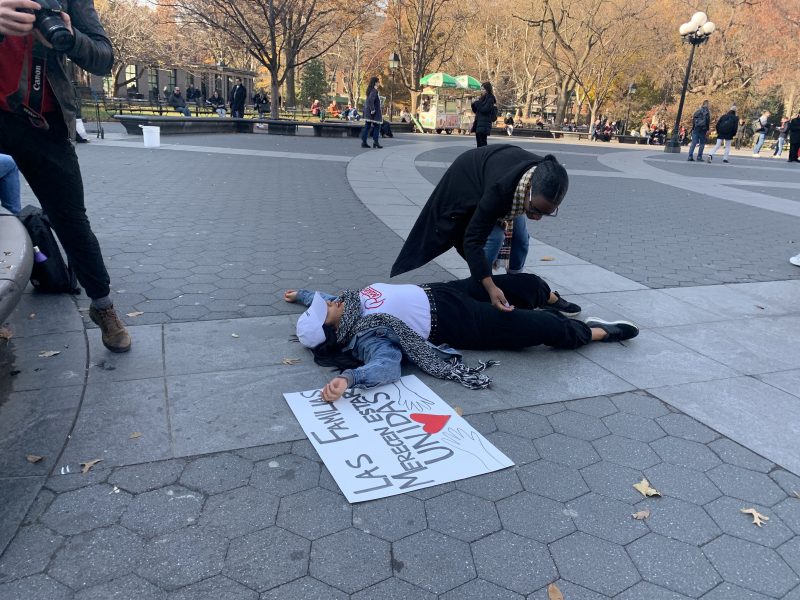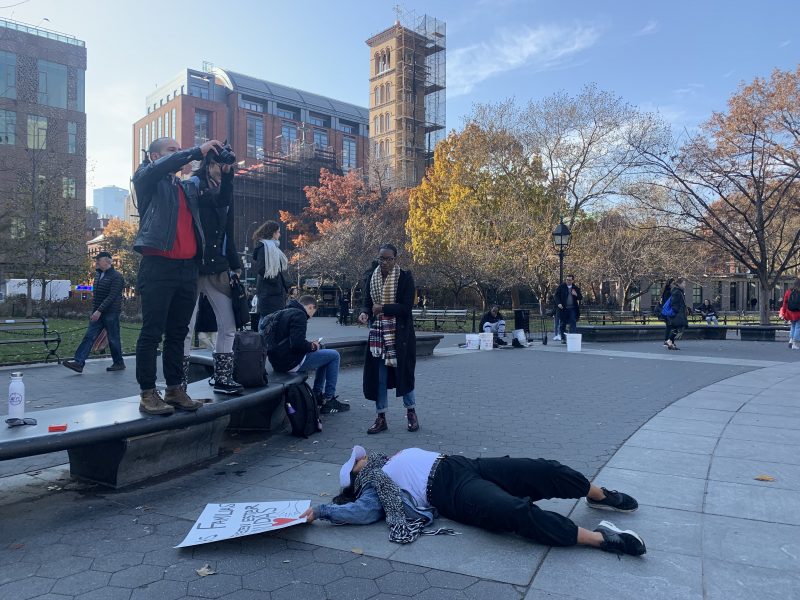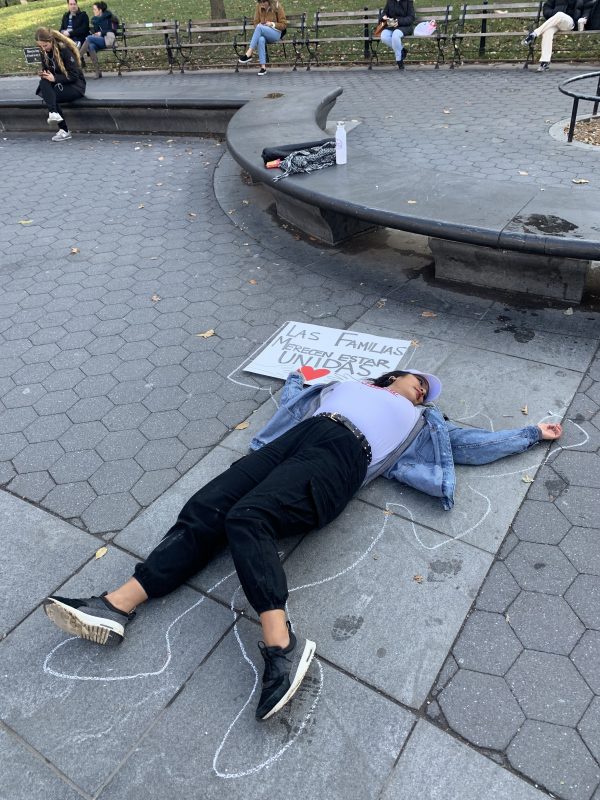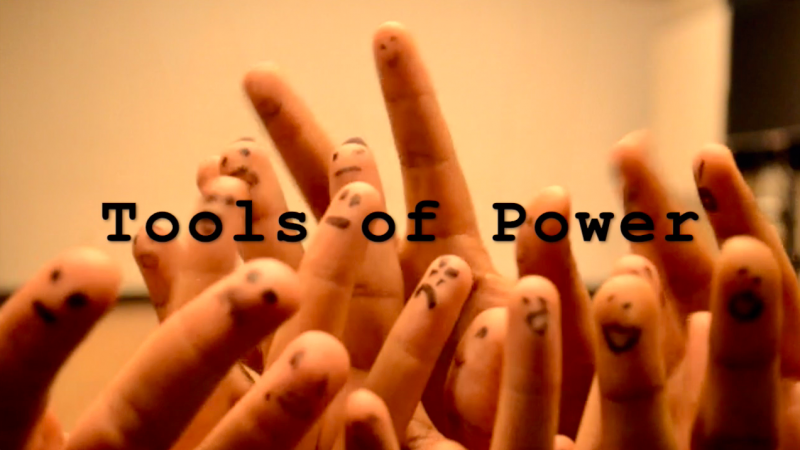
This short film embodies the idea of “tools of power” in terms of persuasion, language, force and speech. This artistic vision is to show the different ways that people are mobilized and the different ways in which people are persuaded, using choreography, bodily movements, political speeches and art. Thus, highlighting how something gets constituted as a “mob” in the most negative way or becomes an assembly. We pose the questions, what makes a narrative valid? What makes it truth? And how can we produce a material response to an immaterial force? Overall, the transfer of an idea or emotion in an empty space to create a sense of community to face a common threat.
Table of Contents
Parody as Narrative Strategy
The Performance and Politics of Code-Switching
Ideology and Bodies in the Performing Arts
Epigenetics & Percepticide
Creating the Collective through Language and Speech
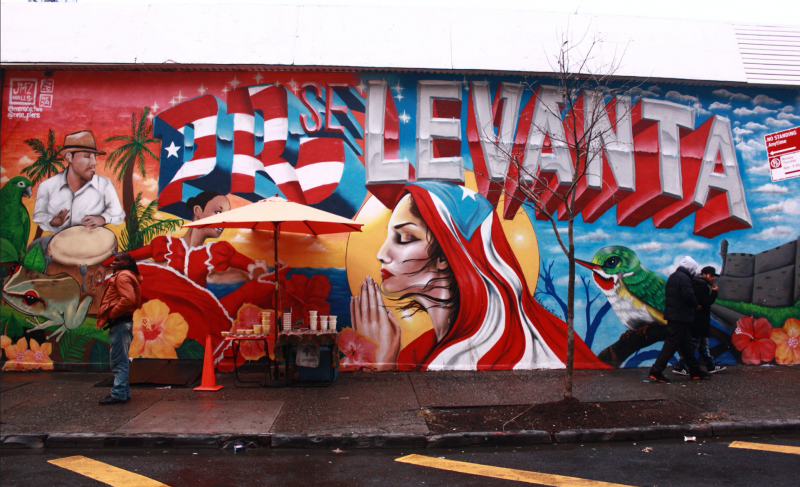
Parody as Narrative Strategy
Acting as a through line for our work, this speech heard throughout the short film parodied five different Hitler speeches using Trumpian rhetoric:
When this first began 4 years ago we knew one thing. The American Dream was dead. I remember thinking that there were only two possibilities: we could either remain great Americans or we perish at the hands of inconsistent politicians.
After the war, factories were strong and the middle class was thriving but things went bad quickly. We fell under weak leadership and over time the games congress has played with the American people left us weak.
I was just like you, I began to question our leaders and knew the best thing I could do was put myself into this race.
The best thing I could do was try to fill america with hope again. But how are we supposed to do this knowing the fact that many Americans still fall by the wayside.
The self-made American must unify with the tired worker, the middle-class family, the business owner who knows jobs must remain here on American soil. We know we must shop American and stop the outsourcing, Stop allowing the US to be steered into oblivion.
If we ask who was responsible for our misfortune, then we must ask who’s profited by our collapse. And the answer to that question is that ‘Banks and Stock Exchanges are more flourishing than ever before.’
We were told that we must destroy capitalism but ‘Don’t forget that the middle class has capital, too” So the fact remains that we would benefit much more from attacking the politicians who allow this to happen before we start going after capitalism as a whole
When the middle east collapsed there were endless streams of Americans- bands of them flowing into the region;
We made the guns that shot the enemy and took terrorists down, We funded those drones, and carried out the destruction that had to happen so that the middle east could become a better region.
But, if America were too collapse today, who would come after us?
Ukraine?
Korea?
Mexico?
Our own political leaders?
The problem is we don’t know.
We suffer today from an excess of culture. Where only knowledge is valued but what we need is instinct and a strong will. Most people have lost both through their ‘culture.’ It has become un-American. What we need is a possibility of leaders drawn from the people itself. People like us
Because Our enemies are getting stronger and stronger by the day, and the US as a country is getting weaker and weaker. How stupid are our leaders, how stupid are our politicians to let this happen?
We know that today the American people consists for one-third of heroes, one third of cowards, while the rest are traitors– as a condition of our freedom and respect of the outside world we must first cleanse our American soil.
We must protect Americans, but our present ‘Borders’ has failed in that task. But our day will come. Before that there must be a day of reckoning for those who, for four years, have led us on their criminal ways.
Our battle at home must come before the battle in front of the world –
The fact is we have folks who say ‘We are Americans and proud’
and those who do not want to be Americans at all
Our campaign knows ‘Our country is in danger!’
How long do you think we can maintain this disharmony?
This Movement was not formed with any election in view, but in order to come to the rescue of the American people–I come to you in our hour of greatest need
The task of our campaign is still today not to prepare ourselves for any coming election but to prepare for the coming collapse of America.
I can’t apologize enough for the hardships and sacrifices of American families. I want you to know the entire nation feels for you. But taking things as a whole, the losses we’ve had are so small they remind of the growing pains that are necessary for this campaign to happen.
The first time I spoke to you was when the crises at the Border began when, thanks to the Mexican people’s conspiracy against peace, every attempt at an understanding with criminals had to be put to work. Now the Mexican people, they are great people, but they’re never going to stop sending us their worst.
These people at the border…They’ve overrun the Mexican police, and they’ve overrun and hurt Mexican soldiers. So this isn’t an innocent group of people. It’s a large number of people that are tough. They’ve injured, they’ve attacked, and the Mexican police and military has actually suffered.
Our campaign has prided itself on being a fair and decent partner to all the countries, offering high-quality products and people instead of worthless words- we are the American people after all. That’s why we are concerned with making sure this is the strongest, greatest country it can be.
I can assure you that I look into the future with perfect peace great confidence. The American people and its allies represent power, military, economic and, above all, in moral respects. Our morals are the highest in the world.The American people will always do their part, whenever and whatever is necessary.
END
Political speeches often use narratives to organize arguments by providing a clear distinction of who is good or bad and/or who just or corrupt (Maclaughlin and Velez 2019). Take for example, Trump’s 2018 remarks on border security. In the speech, the president aims to update the American people regarding immigration at the United States-Mexico border. While explaining how America is welcoming and provides humanitarian assistance, Trump paints the picture that asylum seekers are creating an “invasion” of immigrants who hurt Mexican authorities and community members. As audience members feel like they are directly experiencing an unfolding story that speaks to their ideology, the narrative speech format functions to reinforce world views of those who agree with the America-good/Immigrants-bad binary. Maclaughlin and Velez (2019) explains though individuals typically process messages with intense scrutiny, there is a tendency to immerse oneself in the story and (re)construct the model provided by the narrative.
Using narrative as a strategy in political processes has persuasive effects. Groth (2019) explains, if narratives are told at the right time, stressing the appropriate aspects, to the appropriate spectator, they can be effectively used to frame political positions. As narrative arguments tend to align spectators in an emotional “public” bond they also create a residue of emotion. Ahmed (2004) affirms emotions creates a “passing by” between objects and bodies (125). As “emotions do things” as they transcend levels of significance (Ahmed 2004, 119). There is a cohesion that occurs as affect is circulated from the psychic to the social, (Ahmed 2004). Moreover, as ideas and emotions are exchanged in the political arena they construct a collective of like-thinkers who subconsciously or consciously (re)produce the feelings and thoughts of the political performer.
Taking note of the power of the political narrative to captivate a spectator, parody functions as a way to question the narrative presented. Parody is promiscuous and does not follow normative rules. Therefore, it may be provisionally defined as, “the comic (re)functioning of performed linguistic or artistic material,” (Hariman 2009, 250). It is key to stress any definition should be considered an interim lens of analysis, as the essence of parody is to avoid formal constraints and technical rules. Parody functions as a subset of irony, layering itself with double meaning (Verene 1987). As such, parodic styles involve substitution, direct quotations, alterations of words, or shifts in magnitude (Hariman 2009). Parody becomes a tool of power as it creates perspective by incongruity. That is, by juxtaposing two uncommon texts a spect-actor can question an author’s style, assumptions, and previous linkages that would not have otherwise been considered (Watson 2019). For example, by presenting a parodic (re)functioning of various Adolf Hitler speeches using Trumpian rhetoric, a spectator can question the the overlapping layers of performed narratives and arguments.
| Hitler, A. Munich Speech of August 1, 1923 |
| The domestic battle must come before the battle with the world without – the final decision between those who say ‘We are Germans and proud of the fact’ and those who do not wish to be Germans or who are not Germans at all. ‘The Republic is in danger!’ |
| Trumpian Parody Speech |
| Our battle at home must come before the battle in front of the world – The fact is we have folks who say ‘We are Americans and proud’ and those who do not want to be Americans at all Our campaign knows ‘Our country is in danger!’ |
Ironic commentaries become unique rhetorical tools as they are inherently intertextual; that is, these texts rely on their ability to duplicate an observed communicative act (Hariman 2009). Consequently, parody wears its own costume, acting as an “elusive shadow, stalking the text with which it overlaps” (Kleberg 1991, 96). It is both an imitative performance and rhetorical strategy of critique.
In attempt to uncover some of the questions that lay occluded by Trumpian speech acts, I created a parody of various Adolf Hitler speeches. By reproducing the narrative speech format, parody as tool of power provides critique and showcases problematic parallels to the spect-actor. The acknowledgement of the spect-actor highlights the viewers and the performers potential for political and revolutionary action (Boal 1993).
| Hitler, A. Munich, Gathering of the Sturmabteilung Speech of November 9, 1921 |
| For four and a half years we have known there are only two possibilities: either we remain German or we come under the thumb of the Jews. This latter must not occur; even if we are small, we are a force. A well-organized group can conquer a strong enemy. |
| Trumpian Parody Speech |
| When this first began 4 years ago we knew one thing. The American Dream was dead. I remember thinking that there were only two possibilities: we could either remain great Americans or we perish at the hands of inconsistent politicians. |
| Hitler, A. Munich Speech of April 12, 1922 |
| Then indeed when Rome collapsed there were endless streams of new German bands flowing into the Empire from the North; but, if Germany collapses today, who is there to come after us? And if we ask who was responsible for our misfortune, then we must inquire who profited by our collapse. And the answer to that question is that ‘Banks and Stock Exchanges are more flourishing than ever before.’ We were told that capitalism would be destroyed, and when we ventured to remind one or other of these famous statesmen and said ‘Don’t forget hat Jews too have capital,’ |
| Trumpian Parody Speech |
| But, if America were too collapse today, who would come after us? Ukraine?Korea? Mexico? Our own political leaders? The problem is we don’t know. If we ask who was responsible for our misfortune, then we must ask who’s profited by our collapse. And the answer to that question is that ‘Banks and Stock Exchanges are more flourishing than ever before.’ We were told that we must destroy capitalism but ‘Don’t forget that the middle class has capital, too” |
| Hitler. A Munich Speech of April 27, 1923 |
| We suffer today from an excess of culture [Ueberbildung] Only knowledge is valued. But wiseacres are the enemies of action. What we need is instinct and will. Most people have lost both through their ‘culture.’ We have, it is true, a highly intellectual class, but it is lacking in energy. What we need is the possibility of a continuous succession of intellectual leaders drawn from the people itself. |
| Trumpian Parody Speech |
| We suffer today from an excess of culture. Where only knowledge is valued but what we need is instinct and a strong will. Most people have lost both through their ‘culture.’ It has become un-American. What we need is a possibility of leaders drawn from the people itself. People like us. |
| Hitler. A Munich Speech of August 1, 1923 |
| We know that today the German people consists for one-third of heroes, for another third of cowards, while the rest are traitors, as a condition of our freedom in respect of the outside world we would first cleanse our domestic life. The present ‘United Front’ has failed in that task. The day of another ‘United Front’ will come. But before that there must be a day of reckoning for those who for four and a half years have led us on their criminal ways. The domestic battle must come before the battle with the world without – the final decision between those who say ‘We are Germans and proud of the fact’ and those who do not wish to be Germans or who are not Germans at all. ‘The Republic is in danger!’ How long, think you, you can maintain this ‘State? . . . Our Movement was not formed with any election in view, but in order to spring to the rescue of these people as its last help in the hour of greatest need. The task of our Movement is still today not to prepare ourselves for any coming election but to prepare for the coming collapse of the Reich. Once more I can only repeat that we feel the hardship of the sacrifice borne by the families concerned. The entire German nation expresses to them its heartfelt gratitude. Taking the measures as a whole, however, the losses suffered are so small that they constitute supreme justification for the planning and timing of this campaign At a time when only deeds count and words are of little importance, it is not my intention to appear before you, the elected representatives of the German people, more often than absolutely necessary. The first time I spoke to you was at the outbreak of the war when, thanks to the Anglo-French conspiracy against peace, every attempt at an understanding with Poland, which otherwise would have been possible, had been frustrated. |
| Trumpian Parody Speech |
| We know that today the American people consists for one-third of heroes, one third of cowards, while the rest are traitors– as a condition of our freedom and respect of the outside world we must first cleanse our American soil. We must protect Americans, but our present ‘Borders’ has failed in that task. But our day will come. Before that there must be a day of reckoning for those who, for four years, have led us on their criminal ways. Our battle at home must come before the battle in front of the world – The fact is we have folks who say ‘We are Americans and proud’ and those who do not want to be Americans at all Our campaign knows ‘Our country is in danger!’ How long do you think we can maintain this disharmony? This Movement was not formed with any election in view, but in order to come to the rescue of the American people–I come to you in our hour of greatest need The task of our campaign is still today not to prepare ourselves for any coming election but to prepare for the coming collapse of America. I can’t apologize enough for the hardships and sacrifices of American families. I want you to know the entire nation has a heartfelt attitude. But taking things as a whole, the losses we’ve had are so small they remind of the growing pains necessary for this campaign. At a time when actions count and words are are losing value it is not my intention to appear before you, the elected representatives of the American people, more often than absolutely necessary. The first time I spoke to you was at the outbreak of the war at the Border when, thanks to the Mexican people’s conspiracy against peace, every attempt at an understanding with criminals had been put to work. |
| Hitler. A Berlin, Reichstag Speech of May 4, 1941 |
| The German Reich of the National Socialist revolution has prided itself on being a fair and decent partner, offering in exchange high-quality products instead of worthless democratic paper money. For these reasons the Reich was interested in only one thing if, indeed, there was any question of political interest, namely, in seeing that internally the business partner was firmly established on a sound and healthy basis. I can assure you that I look into the future with perfect tranquillity and great confidence. The German Reich and its allies represent power, military, economic and, above all, in moral respects, which is superior to any possible coalition in the world. The German armed forces will always do their part whenever it may be necessary. The confidence of the German people will always accompany their soldiers. |
| Trumpian Parody Speech |
Our campaign has prided itself on being a fair and decent partner, offering in exchange high-quality products instead of worthless words- we are the American people. That’s why we are concerned with making sure this is the strongest, greatest country it can be. I can assure you that I look into the future with perfect peace great confidence. The American people and its allies represent power, military, economic and, above all, in moral respects, which is the best world. Our morals are the highest in the world.The American people will always do their part, whenever and whatever is necessary. |
In an attempt to highlight the narrative model as a tool of power within these parodic parallels I have decided to include actual statements made by President Trump regarding the immigrant caravan at the United States Mexico border. By placing the negative statements about asylum seekers next to positive statements about America, I create an emotionally driven binary which criticizes the ideology used to mobilize spectators.
| Remarks by President Trump on the Illegal Immigration Crisis and Border Security, November 1, 2018: These people at the border…They’ve overrun the Mexican police, and they’ve overrun and hurt Mexican soldiers. So this isn’t an innocent group of people. It’s a large number of people that are tough. They’ve injured, they’ve attacked, and the Mexican police and military has actually suffered. |
| These remarks are then juxtaposed next to parody to offer a critique of the parallels in narrative speech style: Our campaign has prided itself on being a fair and decent partner to all the countries, offering high-quality products and people instead of worthless words- we are the American people after all. That’s why we are concerned with making sure this is the strongest, greatest country it can be. |
The Performance and Politics of Code-Switching
“In my grandparents’ time, in my mom’s time, Spanish was looked down upon…You were punished in school if you spoke Spanish. You were not allowed to speak it.”
– Julián Castro
On June 26, 2019 in Miami, Florida, presidential candidate Julián Castro closed the night on the democratic stage out with, “Me llamo Julián Castro y estoy postulando por presidente de los Estados Unidos….and on January 2021, we’ll say adios to Donald Trump.” This speech act followed similar moves by candidates Beto O’Rourke, Cory Booker, and Pete Buttigieg who brought out their Spanish on the debate stage. By the end of the night, the new trend of code-switching took the stage and the internet by storm. Other candidates reacted with tweets; such as Marianne Williamson’s, “I need to learn Spanish by tomorrow night at 9.” Public code-switching has become a persuasive tool in narrative strategy among political candidates. Code-switching in political debates performs identification, establishes a sense of belonging, creates a collective “we” through narrative. As candidates alternate between linguistic codes, they unveil inherent public prejudices and bring together diverse constituencies in the political spectrum.

Code-switching is not exclusive to a bilingual population. People code-switch in a multitude of social situations for comfort, etiquette, and when negotiating sexual/racial power dynamics. Laura Callahan (2004), in Spanish/English Code-switching in a Written Corpus, defines code-switching as, “the use of words and structures from more than one language or linguistic variety by the same speaker within the same speech situation, conversation or utterance” (5). She further differentiates between the two types of code-switching as “conversational” and “situational.” Conversational code-switching refers to switching between two different linguistic codes by the same speaker in the same sentence. Situational code-switching refers to, “language alteration by the same speaker in different speech situations, though the speaker’s utterances within each situation are monolingual” (5).
In a political realm, situational code-switching is inherent to a candidate’s narrative strategy; different dialects (and dialectical variations) appeal to different demographics and constituents – the political actor must walk a fine line between speaking in solidarity and using strong enough language to appear as a qualified representative of the people. However, the recent phenomenon of conversational code-switching at the Democratic National Debates gives this strategy new radical visibility and diversifies the sphere of appearance in the political arena. In his closing statement, Julián Castro was not saying, “I am running for president.” He was signaling to the public, “I am one of you.”
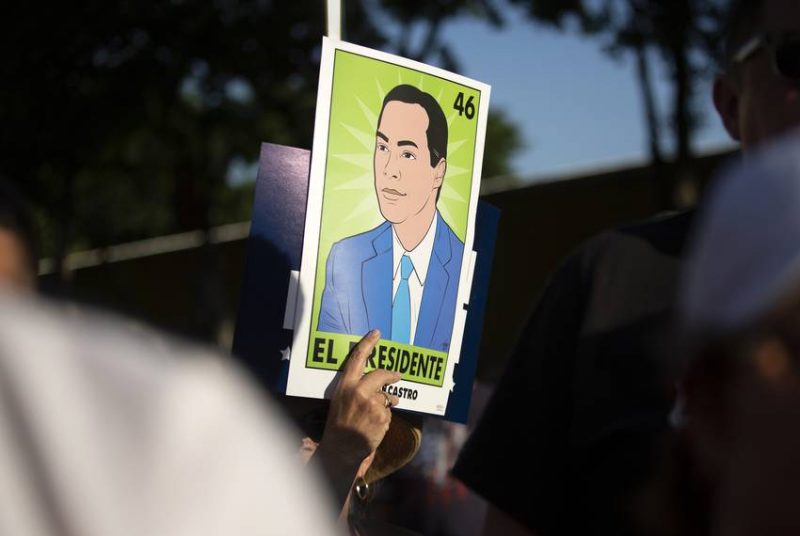
As a tool of power, this narrative strategy puts pressure on the public and demands a more critical engagement with the candidates. Bertolt Brecht (1964) believed in the creation of a more active spectator within the theatre, where the audience was encouraged to develop their own opinions, criticisms, and thoughts about the action onstage instead of acting as traditional passive, “zombies.” This, however, as he lays out in is essay, “A Short Organum for the Theatre,” is only possible if theatre ceases to duplicate the social hierarchy in which the audience already exists. According to Brecht, theatre should be pleasurable and that pleasure should derive from finding that society can be transformed. “We need a type of theatre which not only releases the feelings, insights, and impulses possible within the particular historical field of human relations in which the action takes place but employs and encourages those thoughts and feelings which help transform the field itself” (190). Witnessing events onstage that are too familiar, that reinforce a hierarchy with which the spectator can wholly identify and duplicate without difficulty only fuels passivity. On the political stage, code-switching is an act of transformation and serves to disrupt the linguistic and cultural hierarchy of American politics. Castro points out that the fact he can say, “Estoy postulando por presidente de los Estados Unidos,” is proof of how far we have come in this country; he speaks to instill hope in his constituency and enact this Brechtian transformation.
Moreover, the public is forced to confront this narrative strategy while candidates are arguing for or against relevant, immediate and important policies. Beto O’Rourke argued for economic change both in English and Spanish. Later O’Rourke and Castro went head to head on the subject of repealing Section 1325 of the Immigration and Nationality Act, all while employing conversational code-switching. The linguistic codes are thus elevated and, within the hegemonic social sphere, “legitimized” as they merge into one locus of power.
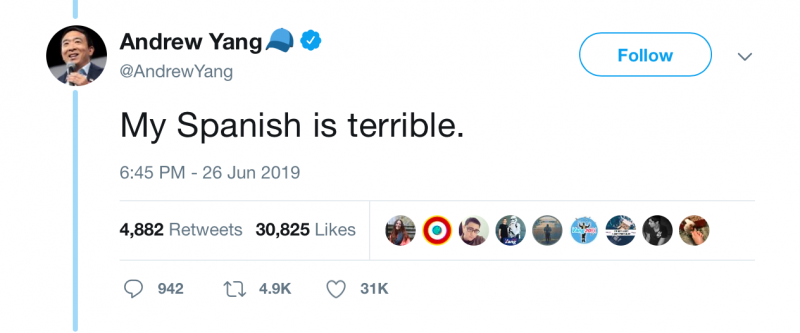
In the wake of this debate, O’Rourke, defined in many articles as a “fluent Spanish-speaker,” is praised for his code-switching (especially in the face of his whiteness), while Castro has faced harsh criticism for not being “fluent” in Spanish. Though the phrase discussed here, “Estoy postulando por presidente de los Estados Unidos” does create a sense of belonging among the public, this “belonging” backfires in the face of harsh critiques of his minor grammatical errors. Headlines emphasize Castro as a “monoglot,” which creates a derogatory term when discussed in the context of Castro’s identity as a Latino.
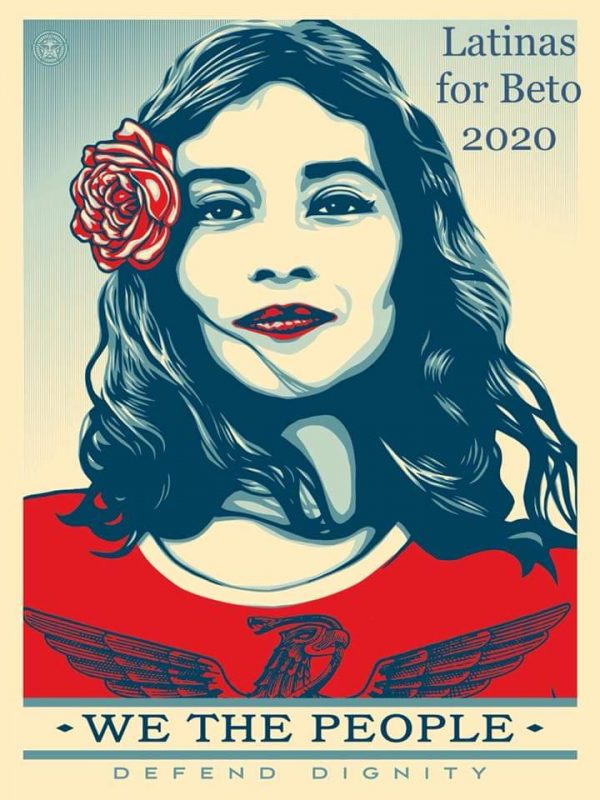
The critique of Castro’s monolingualism is rooted in the problematic pressure placed on the minoritarian subject to be “true” and “authentic.” It emphasizes Jose Muñoz’s (1999) “burden of liveness” for the minoritarian subject in the political field. “Live performance for an audience of elites is the only imaginable mode of survival for minoritarian subjects within the hegemonic order that the chusmas live within and in opposition to. This fact correlates with what I call the “burden of liveness” that inflects the experience of postcolonial, queer, and other minoritarian subjects” (187). Castro is still demanded to “perform” as a “Latino,” though the linguistic code of Spanish is only one small part of that multi-faceted identity.
Through another lens, Castro’s linguistic politics create a new layer of belonging as the son of an immigrant, third generation, who dealt with the oppressive prejudices of conversational code-switching as a child. This strain of linguistic politics now performs identity where Castro, through his experience, is solidified not as the “Latino candidate,” but as inherently American.
Brammer (2019) explains Castro’s monolingualism for the Washington Post, “because, while bilingualism is for many Latinos a treasured aspect of maintaining community in the United States, Castro’s monoglot experience is just as authentic — and even more uniquely American….Castro revealed more about his family’s history with Spanish. “In my grandparents’ time, in my mom’s time, Spanish was looked down upon,” he said. “You were punished in school if you spoke Spanish. You were not allowed to speak it.” He said many Latinos have “internalized this oppression” and desired their children to only speak English”
Through these critiques, the public becomes a large conglomerate of what Augusto Boal (1979) calls “spect-actors” . They actively take part in the conversation, they engage with the acts “onstage,” and create their own dramatic meaning from the performances. The afterlife of this particular debate is fueled by the spect-actor, and the circulation of narrative, of belonging and of identity continues through actions, articles, and social media discourse.
Code-switching is a powerful tool of persuasion and mobilization within political spectacle. This tool subverts the dichotomous hierarchy of linguistic politics within the larger political arena and creates a narrative by performing identification and creating a sense of belonging for the political actor. The narrative is further maintained, circulated, emphasized and elevated by the public who, consciously or unconsciously, engage in a radical, subversive social transformation enacted by this narrative strategy.
Below we have included two portions of the speech written for “Parody as Narrative Strategy,” and heard the film at the top of the page, translated and recorded in Spanish. What are your reactions listening to this speech in a different linguistic code? How does this code-switch perform?
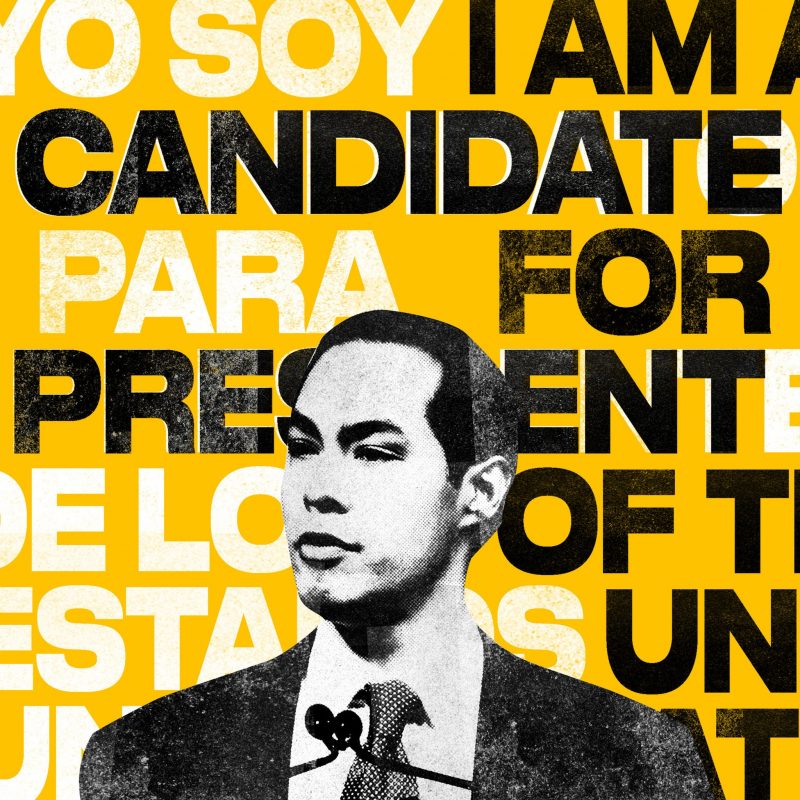
“There is Nothing Wrong with Julián Castro’s Spanish”, New York Times, 2019
Ideology and Bodies in the Performing Arts
Through the dance pieces Zero Intensity, Public Square Dance, and choreography in the opera Nixon in China, I discuss the relationship between power and bodies in dance performance.
1. Zero Intensity
My dance creation is divided into two parts which combines movement laid against political speech as background sound. The first part on the floor represented how body is alienated under power. The dance in the stair well represented bodies securing freedom, which today is challenged by numerous “invisible walls” all over the world. As I was inspired by Deleuze’s (1947) the Body without Organs, I tried to explore not only how ideology shapes body but also how bodies are used as tools to resist power.
2. Square Dance and Public Space
While there are very few people who watch square dance in China, it makes middle age women visible. Still, if no one is really watching, who are they dancing for? If it is just a practice, why do they occasionally have clothing requirements? Why organize this dance group? One of the appeals for middle-aged women joining square dance is to get rid of the de-sexualized label. Square dancing women perform and highlight a feminine quality through movement, realizing their own identities and gaining a sense of pleasure from it. The pleasures related to dance and drawn from sexual attraction cannot be ignored. Most dancers expressed that they would like have someone watch them dance–the more people watched, the more seriously they danced. The performance is a representation of their sexual desire. Their desires are not recognized in mainstream society and is often hidden in order to be considered ethical.

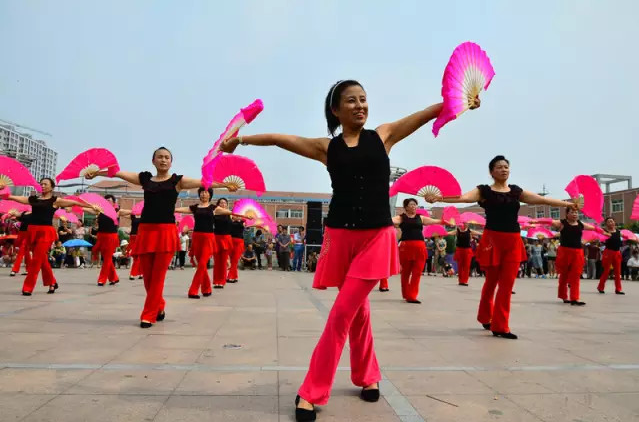
Unlike the large group of young female dancers who are passively presented to the audience during the National Day Ceremony in China, the appeal of women in square dance is to actively present their bodies in public spaces. As middle-aged and elderly women long to be seen by society, they redefined citizenship while they assemble together on the street to dance.
Square dances are always related to spectacle as they hope to be seen by the society. In the Aesthetics of the Oppressed, Boal (2006) states :
“Spectacle is not confined to a fifteenth birthday party at which the young woman dances her first waltz with her father, or the dance of the commoner Angelica with the Prince in Visconti’s The Leopard, which opens the doors of nobility to her, or the marriage ceremony of a bride all dressed in white; nor is it only when the president of the Republic lays wreaths on the tomb of the unknown soldier, or a new road is officially opened. Spectacle is not just these moments of extravagance and pomp; it also embraces the hearty family Sunday lunch, where people eat and talk according to established rules, as in any piece of theatre. Spectacle has the function of revealing who is who, as if planting a legend on the brow of each protagonist or supernumerary”
(Boal 2006, 33)
These women create a spectacle as they have already carry-out political action through dance.
Today, China’s society is gradually becoming an individualized, even the living conditions of young people in big cities have begun to be “automized”. Adults in China have a very high sense of borders and strong self-awareness. However, in the process of growing the “square dance generation”, a collective personality has shaped among the older adults. Thus, when people retire or are at the age of retirement their focus shifts from family or profession to the blank. The elderly begin to lose the mental support of their family and professional relationships and their time-consuming blanks will come out. As generations clash, each begins to find their own sense of presence and importance through their collective activities. It is important to note that these square dancers are mostly in their 50s and 60s. Square dancers come together as they are experiencing profound social structural changes in their lives. Therefore, retiring adults need to be in groups, they need music, they need to stand in the square/stage that everyone can see, remind themselves and others, they can still adapt to today’s society and not be thrown away. As Ranciere (2004) pointed out: “It is a delimitation of spaces and times, of the visible and the invisible, of speech and noise, that simultaneously determines the place and the stakes of politics as a form of experience. Politics revolves around what is seen and what can be said about it, around who has the ability to see and the talent to speak, around the properties of spaces and the possibilities of time” (Ranciere 2004, 13).
The use of space by square dancing women has been widely questioned by Chinese society: square dance reflects the conflict between the use of public space and social expectations. The essential attribute of public space is publicity, which belongs to all citizens. The mainstream urban population represented by middle class citizens generally believes that a modern public space should be quiet and orderly. The square dance represents a lively behavior, which clearly conflicts with societal expectations. Some people suggest that square dance is a source of noise pollution and think it lacks aesthetic. Because square dance is a spontaneous, autonomous, unofficial act that reflects the subjectivity of citizens it may be seen as the awakening of modern citizenship consciousness.
3. Nixon in China
Nixon in China is an opera composed by John Adams. The inspiration behind the opera came from US President Richard Nixon’s visit to the People’s Republic of China in 1972. The surrealist dance portion of Red Detachment of Women was choreographed by American choreographer Mark Morris. In addition to the choreography, Gia Adams’s soundtrack (mixing and matching Wagner, Strauss, Stravinsky to create the illusion of a staggered collective creation), becomes a critique and sarcastic collective creation in the culture revolution of China.
Epigenetics and Percepticide
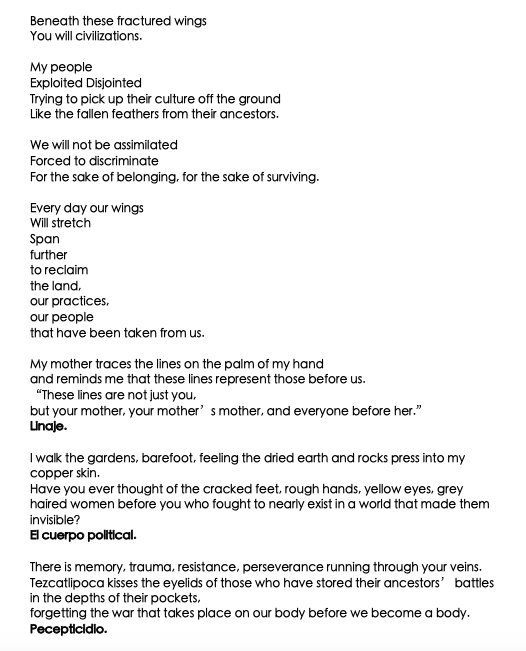
When thinking of tools of power, it is hard for us to forget about the effect violence and speech has on the body. Furthermore, it is interesting to think about what happens when those tools are absorbed into the genetic memory and then passed on. How does this mobilize a group of people? Is this something that is thought about when we perform tools or power, or when we resist it? The idea of memory being stored in DNA is explained by epigenetics. “Epigenetics is the study of inherited changes in gene expression…changes that are inherited, but they are not inherent to our DNA. For instance, life experiences, which aren’t directly coded in human DNA, can actually be passed on to children. Studies have shown that survivors of traumatic events may have effects in subsequent generations” (Javelosa 2016). This study explains memory that is shared amongst civilization is passed down through the genetic code. By reliving the memory, either through representation, ritual, or storytelling, the culture is able to survive. “Signatures of ethnicity in the genome appear to reflect an ethnic group’s shared culture and environment, rather than their common genetic ancestry, report scientists. Epigenetic signatures distinguishing Mexican and Puerto Rican children in this study cannot be explained by genetic ancestry alone, the researchers say” (University of California-San Francisco 2017). Epigenetics explains the instinctual phenomena of kinesthetic empathy when one watches something that touches them because it may have been experienced by their ancestors. Not to say that culture is only stored within one’s DNA. Culture can be stored through performance, art, in food. However, if that culture is lost or suppressed, there is no culture to begin with other than within one’s DNA.
FORGIVENESS
“Baptize me … now that reconciliation is possible. If we’re gonna heal, let it be glorious. 1,000 girls raise their arms. Do you remember being born? Are you thankful for the hips that cracked? The deep velvet of your mother and her mother and her mother? There is a curse that will be broken.”
“The nail technician pushed my cuticles back … turns my hand over, stretches the skin on my palm and says, ‘I see your daughters and their daughters.’ That night in a dream, the first girl emerges from a slit in my stomach. The scar heals into a smile. The man I love pulls the stitches out with his fingernails. We leave black sutures curling on the side of the bath.
I wake as the second girl crawls headfirst up my throat, a flower blossoming out of the hole in my face.”
In Beyoncé’s visual album Lemonade, she is thinking about the metaphysical dilemma of the black woman in regards to love, grief, and existence in America. After expressing her pain and anger in the beginning of the album, Beyoncé recites poetry that touches on epigenetics. She talks about the role of DNA in regards to the collective and cultural memory of the black woman. Moreover, she asks the audience to think about what and who has come before them and what will come after. She believes that we are capable of breaking to the curse of repetitive trauma and pain that is transferred from the genetic memory of the black woman to her offspring. This is accomplished through forgiveness and from (re)membering rather than just rewriting. Percepticide is the antithesis for the ability to break the epigenetic curse of people of color who have been predisposed to be unseen, unheard, and unrecognized. Therefore, percepticide is the act of turning a blind eye to what is going on in the world in order to spare oneself the pain and guilt of witnessing.
To see without being able to do disempowers absolutely. But seeing without the possibility of admitting that one is seeing further turns the violence on oneself. Percepticide blinds, maims, kills through the senses. What happens to the “witness” in a situation that forces people to participate in the production of denial? The passersby, the neighbors, could not bear witness; they closed the door, shut the curtains, turned off the light. Those who saw denied, as if their lives depended on it. For within the economy of the overarching gaze, they too felt vulnerable to detection, abduction, disappearance. The scenario, which reduced most of the population into a credulous, obedient us, blind to the fate of those who were positioned as the hunted, dangerous them, shows how violent situations collapse positions into two sides: for and against; the Big Bad Wolves and Little Red Riding-Hoods
(Taylor 1997, 124)
Percepticide is a condition in which a subject censors themselves to the exposure of violence or oppression in a space (Taylor 1997). This being said, this fight or flight technique is connected to epigenetics. Rather than perform a tool of power, or tool of resistance, percepticide not only continues the trauma that is passed down through the DNA, but also works to suppress the genetic memory. There is a cognitive dissonance that occurs within the subject, a loss of self due to loss of memory. Rather than create a new memory, a new code, the percepticide performing subject tries to rewrite or rather erase the self and generations that came before as a survival technique. However, this in itself is criminal. There is a death happening, bloody hands that spread over the eyes and blinds oneself in order to shield from the chaos.
Creating the Collective through Language and Speech
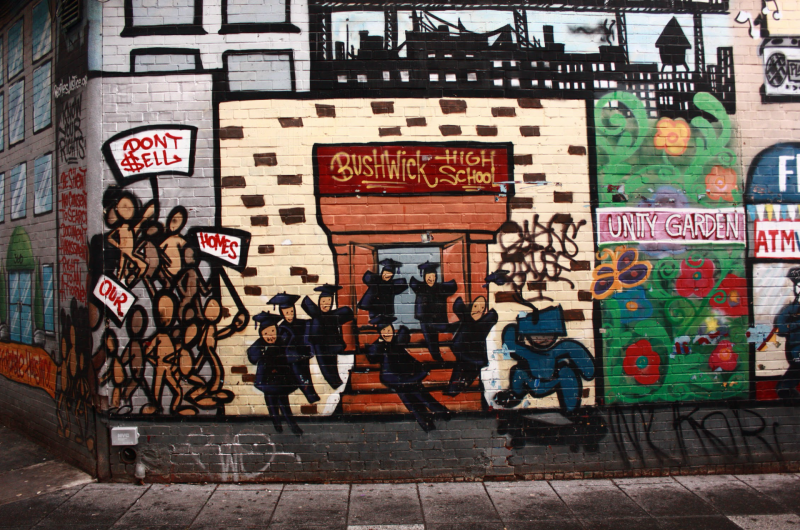
Ideology, the body of belief… but not the physical embodiment, sino las palabras que flotan en el aire,
It is a want, a need, an attachment,
A lingering voice,
El trauma que el cuerpo sostiene
The passion that flows through the airways, the writing on the walls, the movement, la unidad,
The struggle, the truth, the force that surrounds us,
Yet we can’t see it,
Did I miss your face?
Or am I just the ash that was left once you came and took the words from my lips,
Dejándome como un torso sin un lugar para crecer,
You took my words and gave me new ones,
But… why does it sound more like you than me?
I am trapped in a bubble of communication sin credibilidad y Resistencia,
I feel your energy and your presence permeating through the corners of the wall,
Asi que la confianza que tenía, ya terminó,
I pretended I was happy when you took my last words,
Pero dibujé una imagen que no se puede ver y una voz que ha perdido su lugar en el mundo.
Dantae Garee Elliot
In any political system or in the creation of a political actor, one of the main forms of control of information, image and identity is the act of persuasion, using speech and specific language. In this age in politics, the digital atmosphere is present in circulating information or building the character of an opposing candidate. The use of twitter and other social media platforms has proven to be effective for many presidential candidates and the current president of the United States. Social media platforms are not just used as tools to circulate information but as a communicative tool that presents opposing language and information about a candidate that does not share the same viewpoint in the political spectacle, they are involved in. Therefore, we see the formation of speeches, and the way in which a political figure uses language to mobilize people and create a certain “passion politics” (Taylor), that is driven by an ideology. Thus, the performative factors in the political spectacle is a representation of a narrative that they would like to carry out in their political campaign. Many of these political discourses leads to force and violence against bodies that goes against this narrative. In some instances, even when there is an image that shows a specific situation, it often can be talked down to be “fake news”, thus making it an alternative reality. Rancière (2008) mentioned in “the intorable image” that, “classical rhetoric and poetics have taught us this: there are images in language as well. They consist in all those figures that replace one expression by another, in order to make us experience the sensible texture of an event better than the ‘proper” words would”. This idea has come into play in contemporary politics in the way political actors have created certain images within their narratives to invoke fear in their followers and present the idea that they are losing their place in the hierarchy they inhabit in society.
“Ideology is the foundation of the thought of a class society within the conflictual course of history. Ideological entities have never been more fictions- rather, they are a distorted consciousness of reality, and as such, real factors retroactively producing real distorting effects; which is all the more reason why that materialization of ideology, in the form of spectacle, which is precipitated by the concrete success of an autonomous economic system of production, results in the virtual identification with social reality itself of an ideology that manages to remold the whole of the real to its own specifications”
(Debord 1967)
The manipulation of words and creation of narratives as a political force is particularly problematic in that it can be manifested in any media outlet or social media platform. Hence, the information is being controlled by the people who want to create a nationalistic discourse and ideology that supports that message. In turn, the fandoms created with a certain discourse develop an undying passion for upholding these ideologies. Therefore,
“the dominant media by no means drown us in a torrent of images testifying to massacres, massive population transfers and other horrors that go to make up our planets present. Quite the reverse, they reduce their number, taking good care to select and order them. They eliminate from anything that might exceed the simple superfluous illustration of their meaning. What we see above all the news on our TV screens are faces of the rulers, experts and journalists who comment on the images, who tell us what they show and what we should make of them”
(Ranciere 2008, 82-105)
Credibility is no longer a factor in the representation of certain discourses, the president can make whatever claim he desires, however, even if he is corrected, the fandom does not accept the factual information, since he has created a network where his narrative is always the “truest” form of the events happening. That is the danger in the national discourses in contemporary politics, it not only plays on the fears of people but also create misinformation for the general consumers of this narrative. As the title of this project is “Tools of Power”, the definition of “tool” or “herramienta” in Spanish, according to Webster dictionary is, “something (such as an instrument or apparatus) used in performing an operation or necessary in the practice of a vocation or profession”. Words are then used as a political tool that facilitates a specific political agenda or create a political actor who is perceived as a folk hero, which is developed through speech, persuasion and creating a story line that goes with the narrative.
Political discourse as a tool is heavily reliant on the audience they draw in and the narrative that they create. The tendency to create a collective system within this political discourse is key in mobilizing people with the same ideology, who rely on the narrative to perform accordingly. These political actors create a political reality that reflect their narratives and recruits’ members of the audience who comply with these beliefs. For example, in many recent political campaigns in the US, many democratic candidates have been making a stop at the popular hiphop morning show, The Breakfast Club, which is located in New York City, to reach a broader audience (The African-American Community). While political candidates are on the show, talking points are presented which cater to African American voters and creates an image of these political actors that makes them seem more likeable and approachable. Political Candidates often draw upon cultural references, and different idioms that would connect them to the African American community. The likes of Hillary Clinton, Kamala Harris, and more have appeared on the morning show, which created many soundbites for their campaigns and gave them wide social media exposure; whether negative or positive, they were trending on twitter and different social media platforms. The rise in political candidates joining many urban talk shows is not just seen through The Breakfast Club, but also the Desus and Mero show, who are based in New York. The duo grew up in The Bronx and represent the everyday New Yorker from that borough. Their show is very attractive to these candidates because they can reach a population who are deemed as non-conventional voters. The candidates narrow in on this population or community to develop their political profile and show that they are “hip” and can connect with the struggles of these communities, even though they are far removed from it.
“What is something that you always carry with you?”
“Hot Sauce”
The Breakfast Club Power 105.1
The theory of Animacy by Mel Chen (2012) explains, to focus on the role of the usage of words and narratives to create a hierarchy that exclude marginalized populations, in a political and social context. The key point of dissecting the concept of animacy, a linguistic term that classifies different levels of agency, mobility and liveness, showing how human languages assumes a hierarchical role shaped by its grammatical structures, hence, “animacy hierarchies” (Chen 2012, 42). There is an assumption about different levels of agencies, and states that humans are in fact the most animate beings, while suggesting that some humans are more animate than others. To illustrate, male, white, or non-disabled, those who assume the top tier in the societal hierarchical structures. According to Chen (2012), in the chapter “Language and Mattering Humans”, shows language as animated, and as a way of portraying the embodiment of political, social and cultural life. This idea of the “animacy hierarchy” in the configuration of words and the use of language, highlights the removal of certain qualities that were deemed to be human.
For political figures such as Trump in the United States, Bolsonaro in Brazil and the rise of the VOX party in Spain, establishes their rhetoric on the removal of certain qualities from different marginalized groups in their society, and dehumanizes these bodies to establish the “us versus them” narrative. Therefore, “linguistic objectification is framed by historical, national and social configurations of power” (Chen 2012, 46). This brings about the realization that words are not just to be spoken but they are a building block in social classifications and political ideologies. Language is a powerful political tool that is essential to the creation of all political figures in the contemporary setting or past political spectacles. Overall, animacy shows, declares and expresses the ways in which different beliefs about many subjects holds the power to affect others, and innately makes a claim to which lives matter and which ones do not (Chen 2012). It is the mere fact that language itself bears a certain type of affect, which in turn create multiple effects. Moreover, “language tells us of shared priorities (cognitive or not) and material-linguistic economies, in which some “stuff” emerges, and other “stuff” remains ineffable, unmaterialized. The sentience of a noun phrase has linguistic and grammatical consequences, and these consequences are never merely grammatical and linguistic, but also deeply political” (Chen 2012, 55). Above all, one can register language as a tool of power, in objectifying and animalizing certain bodies, giving certain force to language that crafts the way a political audience or fandom view and develop their passion for their political folk hero.
“no housing, no homes, no ownership. And I ask you this, I ask you this- crime, all of the problems- to the African Americans, who I employ, what the hell do you have to lose?”
Donald Trump, Ohio Rally 2016
On the other hand, the different acts of violence from the control of a certain political discourses are linked to creating or spreading stereotypes of marginalized subjects, therefore using a scapegoat tactic. According to René Girard, “ultimately the persecutors always convince themselves that a small number of people, or even a single individual, despite his relative weakness, is extremely harmful to the whole of society” (Girard 1982, 15). With this development of the stereotypes and biases against certain individuals, becomes part of the persecution of these bodies in societies, since they are judged based on a narrative created out of a political and social ideology. Thus, “the rich and powerful exert an influence over society which justifies the acts of violence to which they are subjected in times of crisis. This is the holy revolt of the oppressed” (Girard 1982, 19). For example, when Trump gave a speech at a 2016 rally in Ohio in his quest for the U.S. presidency, and proclaimed to the African American community that, “no housing, no homes, no ownership. And I ask you this, I ask you this- crime, all of the problems- to the African Americans, who I employ, what the hell do you have to lose?” (Johnson 2016). Urging black voters to vote for him since “they have nothing to lose”, manifests’ the trope of deeming this marginalized group as already being the bottom of the social hierarchy. This is not just harmful to the community but a harmful rhetoric that validates the different stereotypes that are in abundance about the black community being all criminals, unintelligent and not contributing anything substantial to society. These discourses allow for a collective prosecution of these bodies which are put into effect by a political head who created this environment. Thus, “the crowd by definition seeks action but cannot affect natural causes. It therefore looks for an accessible cause that will appease its appetite for violence. Those who make up the crowd are always potential persecutors, for they dream of purging the community of the impure elements that corrupt it, the traitors who undermine it” (Girard 1982, 16). The stereotyping of many groups in society through persuasion and discourse assigns a position to many people, making them victims of harsh prosecutions and discrimination of all forms (violent and nonviolent).
Overall, words and narratives mobilize people in ways where it is done through passion for the ideology that they believe in. Those discourses are then used to socially categorize people on a political basis, and at many times using violence and force to demonstrate their place of power. Many of these violent acts inflicted on different bodies in a hostile political climate is done so through the persecution of bodies that are highly stereotyped and racialized. Therefore, the body becomes enclosed in spaces where these power structure thrives. According to Michel Foucault (1975), a form of violence and force is based on the idea of discipline, this discipline is a way to control the mobilization and operation of the body. This type of control is present within the political and nonpolitical systems to regulate the individuals in these spaces. Therefore, the use of violent rhetoric is a form of mobilizing bodies to act against groups in society that may not carry the same political ideology or those who are deemed the “minority” in the racial sense. Words and specific language are a key political tool in gaining support for a political candidate, since one can produce a storyline, that is attractive to a certain base, and making it a personal endeavor for those who support the ideology of that political candidate. Whether it is “MAGA” or “hacer España grande otra vez”, these slogans build a political movement driven by the passion that people carry for feeling as if they are losing their place in the social hierarchy in society and blaming marginalized communities for that apparent societal shift. Words are never just words, they are the driving force in shaping a society, in the political, social and ideological structures.
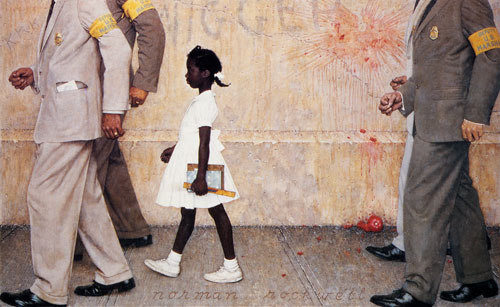
References
Ahmed, Sara. 2004. Affective Economies, Social Text, 117-139. https://muse.jhu.edu/article/55780
Boal, Augusto. 1993. Theatre of the Oppressed. New York, New York: Theatre Communications
Boal, Augusto, and Adrian Jackson. 2006. The Aesthetics of the Oppressed. London: Routledge
Brammer, John Paul. 2019. “Julián Castro Can’t Speak Spanish. Here’s Why That’s So Authentic.” The Washington Post. https://www.washingtonpost.com/opinions/2019/07/09/julin-castro-cant-speak-spanish-heres-why-thats-so-authentic/
Brecht, Bertolt. 1964. “A Short Organum for the Theatre.” Brecht on Theatre.
Callahan, Laura. 2004. Spanish/English Code-switching in a Written Corpus. Amsterdam, Netherlands: John Benjamin Publishing Company.
Chen, Mel. 2012. Animacy: Biopolitics, Racial Mattering, and Queer Affect. Durham, NC: Duke University Press.
Girard, René. 1982. The Scapegoat. Baltimore, MD: The John Hopkins University Press.
Foucault, Michel. 1975. Discipline and Punishment: The Birth of the Prison. Editions Gallimard.
Groth, Stefan. 2019. Political Narratives/Narrations of the Political, Narrative Culture, 1-18, doi: 128.122.149.96
Hariman, Robert. 2008. Political parody and public culture. Quarterly Journal of Speech, 247–272. doi:org/10.1080/00335630802210369
Hitler, Adolf. 1921. Munich, Gathering of the SA, Speech of November 9, 1921. Hitler Historical Museum. http://www.hitler.org/speeches/11-09-21.html
Hitler, Adolf. 1922. Munich Speech of April 12, 1922. Hitler Historical Museum. http://www.hitler.org/speeches/04-12-22.html
Hitler, Adolf. 1923. Munich Speech of April 27, 1923. Hitler Historical Museum. http://www.hitler.org/speeches/04-27-23.html
Hitler, Adolf. 1923. Munich Speech of August 1, 1923. Hitler Historical Museum. http://www.hitler.org/speeches/08-01-23.html
Hitler, Adolf. 1923. Berlin, Reichstag, Speech of May 4, 1941. Hitler Historical Museum. http://www.hitler.org/speeches/05-04-41.html
Javelosa, June. 2016. “Memories Can Be Inherited, and Scientists May Have Just Figured out How.” Futurism. http://www. futurism.com/memories-can-inherited-scientists-may-just-figured.
Johnson, Jenna. 2016. Donald Trump to African American and Hispanic voters ‘What do you have to lose’. Washington Post. https://www.washingtonpost.com/news/post-politics/wp/2016/08/22/donald-trump-to-african-american-and-hispanic-voters-what-do-you-have-to-lose/
Kleberg, Lars. 1991. Parody and double-voiced discourse: On the language philosophy of Mikhail Bakhtin. The Springer Series on Artificial Intelligence and Society, doi: 10.1007/978-1-4471-1731-5_11
Knowles, Beyoncé. 2016. Lemonade.
Maclaughlin, Bryan and Velez, John A. 2019. Imagined politics: How different media platforms transport citizens into political narratives. Social Science Computer Review, 22-37. doi:10.1177/0894439317746327
Muñoz, José Esteban. 1999. Disidentifications. Minneapolis, Minnesota: University of Minnesota Press.
Rancière, Jacques. 2008. The Emancipated Spectator. London: Verso Books
Rancière Jacques and Gabriel Rockhill. 2004. The Politics of Aesthetics: the Distribution of the Sensible. London: Continuum
Taylor, Diana. 1997. “Percepticide.” Disappearing Acts: Spectacles of Gender and Nationalism in Argentina’s “Dirty War. Durham, NC: Duke University Press.
Taylor, Diana. “The Politics of Passion”. Hemispheric Institute, New York University.
Trump, Donald. 2018. Remarks by President Trump on the Illegal Immigration Crises and Border Security, White House. https://www.whitehouse.gov/briefings-statements/remarks-president-trump-illegal-immigration-crisis-border-security/
University of California San Francisco. 2017. “Cultural differences may leave their mark on DNA.” ScienceDaily. https://www.ucsf.edu/news/2017/01/405466/cultural-differences-may-leave-their-mark-dna
Verene, Donald Phillip. 1987. Vico and Joyce, New York, NY: Suny Press.
Watson, Cate. 2019. Perspective by incongruity in the performance of dialectical ironic analysis: a disciplined approach, Qualitative Research Journal, 589-609, doi:10.1177/1468794119830073
